Builder.ai claims to simplify software development using AI, attracting massive investments from Microsoft, SoftBank, and others, with a valuation once exceeding $1.5 billion. However, it actually relied on human labor pretending to be AI, and the founder inflated revenue by three times. After the scandal broke, investments were frozen, and the company went bankrupt.
The Indian founder is indeed quite bold!
Today, we are talking about Sachin Dev Duggal, the founder and former CEO of the AI programming company Builder.ai.
He created a "fake AI company that is all human, no intelligence."
He deceived giants like SoftBank and Microsoft into providing hundreds of millions in funding, pushing the valuation to $1.5 billion.
He even dared to falsely report a 300% revenue increase to investors.
Yes, there was no AI behind this company; it was just a group of Indian workers pretending to write code as AI.
Even more shocking, this deception persisted for 8 years.
But this week, it seems he is completely finished.

Founder and former CEO Sachin Dev Duggal
With the recent exposure of the "fraud," the previous round of investors quickly froze the remaining $37 million in their investment accounts (having invested a total of $50 million), leaving only $5 million in the company account, which is also restricted by government regulations on capital outflow, making it impossible to use for payroll.
With no other options, Builder.ai had to file for bankruptcy. By this time, the CEO had already been replaced by Manpreet Ratia, who was brought in to "clean up" after founder Sachin Dev Duggal resigned as CEO in February.
This farce directly led to the largest collapse among AI startups since the release of ChatGPT in 2022—this company had a valuation exceeding $1.5 billion in its last funding round.
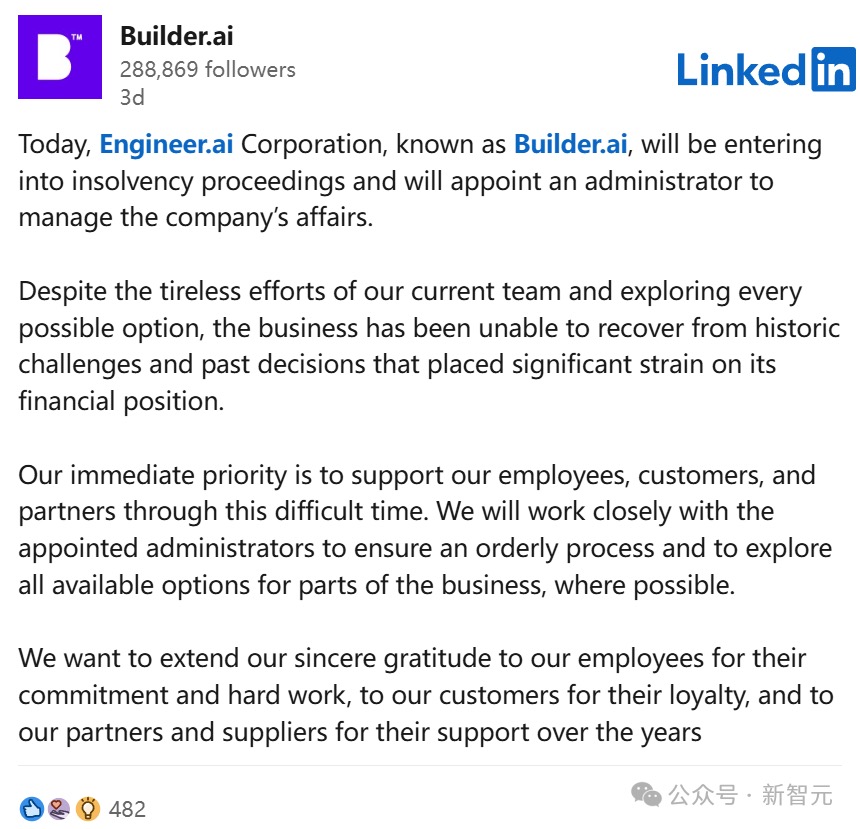
Builder.ai's bankruptcy liquidation notice

Builder.ai's official website is now inaccessible, leaving only two contact emails.
Among the "victims" in this debacle, besides Viola Credit, which provided $50 million, is one of the world's largest sovereign wealth funds—the Qatar Investment Authority (QIA), which led a $250 million funding round two years ago.
Additionally, Microsoft also invested that same year and became a strategic partner, even integrating Builder.ai into its cloud services.
The Golden Age
Builder.ai was born in London, stemming from its founder Sachin Dev Duggal's dissatisfaction with traditional software development.
In the golden age of AI-driven narratives, Builder.ai had a catchy slogan: making software development "as easy as ordering a pizza."
Founded in 2016, this startup claimed it could enable non-engineers to build complex applications through a platform purportedly driven by AI, thereby democratizing software development.
The AI marketing slogan worked wonders for investors.
Builder.ai's predecessor was called Engineer.ai, and the company, headquartered in London and Los Angeles, raised $29.5 million in 2018 from investors including Deepcore Inc., a wholly-owned subsidiary of SoftBank.
Other investors included the Zurich-based venture capital firm Lakestar (an early investor in Facebook Inc. and Airbnb Inc.) and Singapore-based Jungle Ventures.

Founder Sachin Dev Duggal at an early tech conference
By 2022, Builder.ai had raised $195 million and in May 2023, added another $250 million in a funding round led by the Qatar Investment Authority (QIA).
That same year, Microsoft joined as a strategic investor and partner, integrating its Builder.ai platform into its cloud service products.

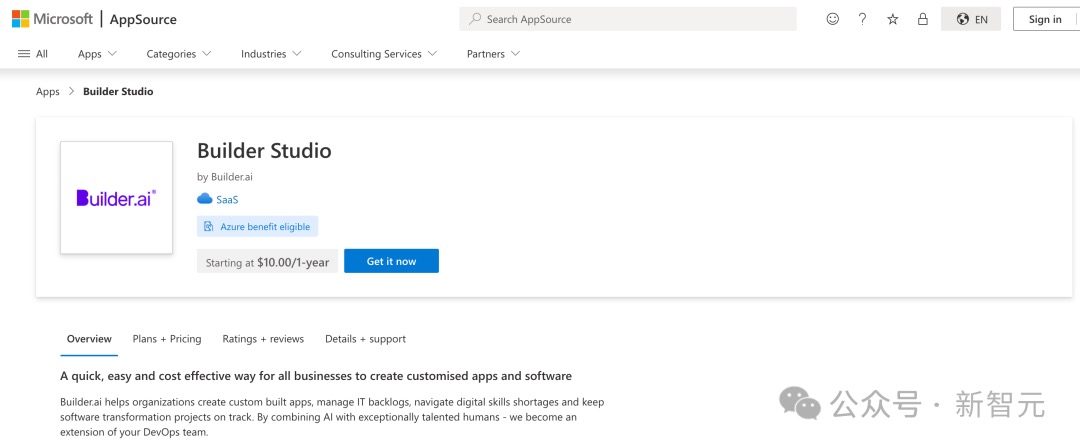
This brought immense recognition, and the expectations that followed were equally high.
Over the next 8 years, it raised over $445 million, with investors including Microsoft and the Qatar Investment Authority, and the company's valuation crossed the $1.3 billion mark.
Builder.ai's solution was to combine modular code components with human developers, coordinated by AI.
Its platform, named "Builder Studio," featured a digital assistant called "Natasha," promising an AI-driven seamless user experience.

Builder.ai's cool official website, which is now completely inaccessible
But behind this vision was the reality that most of the work was done by Indian developers, not AI.
In 2019, The Wall Street Journal revealed an embarrassing truth: Builder.ai's AI was more of a marketing gimmick than an engineering breakthrough.
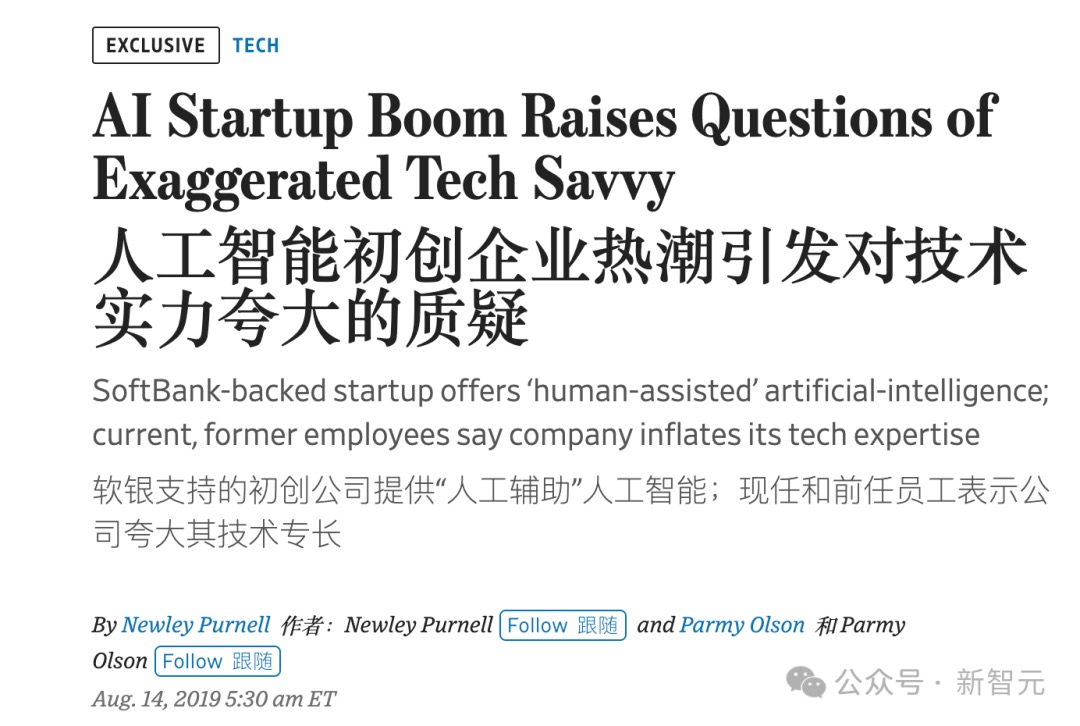
Several current and former employees stated that some pricing and scheduling calculations were done using traditional software, and most of the remaining work was manually completed by staff.
If you told clients you were using AI, they likely wouldn't think of technology from the 1950s. Decision trees are a very old and simple technology.
These individuals indicated that the company lacked natural language processing technology, and the decision trees used internally should not be considered AI.
As reported, Builder.ai, this AI company, is "all human, no intelligence."
The gap between this narrative and reality would determine the company's trajectory.
Only Humans, No Intelligence
Signs of deception at Builder.ai appeared not only in the 2019 Wall Street Journal report.
According to multiple former employees and insiders on Reddit, Builder.ai may have been all human, no intelligence from the start.
Several former employees stated that management could not have been unaware of the ongoing fraud; they simply chose to ignore it. After working there for two years, they hardly saw any projects delivered.
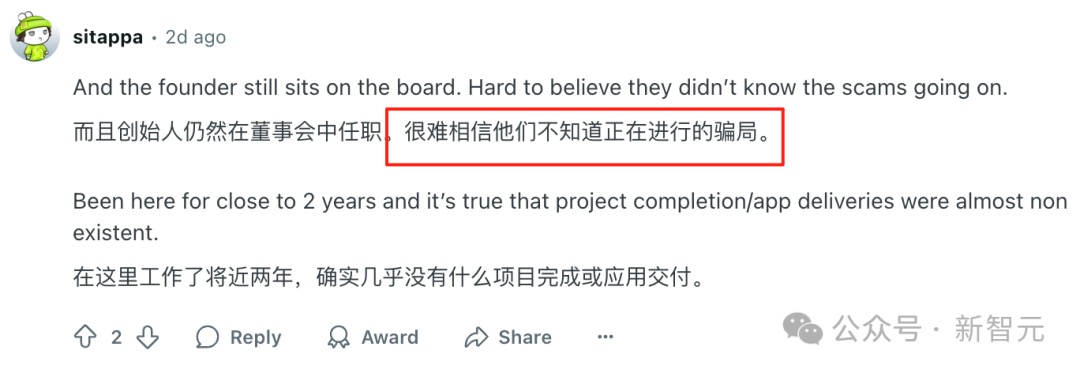
Moreover, former employees revealed that Builder.ai severely underpaid its staff, even calling the salaries "garbage," and that it was a marketing-driven rather than an AI-driven company.
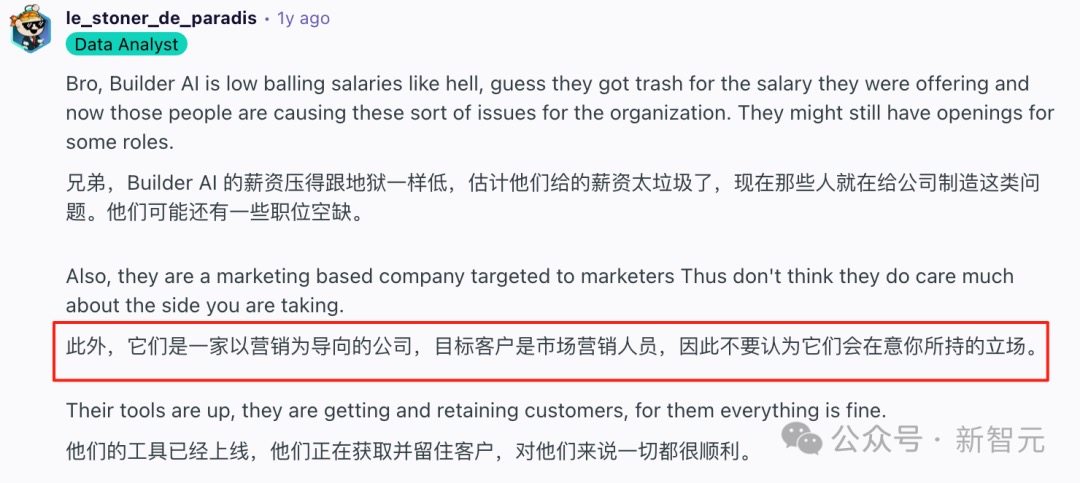

A user discovered a year ago that there were many "incomprehensible" aspects in the services provided by Builder.ai.
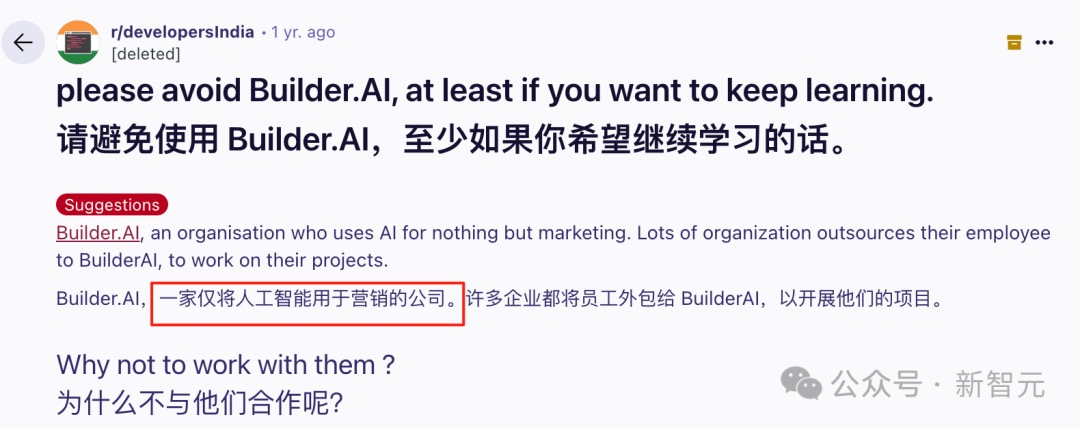
These included: poor development experience, lack of modules, unusable code, inability to access the IDE, and some code being completely unmodifiable.
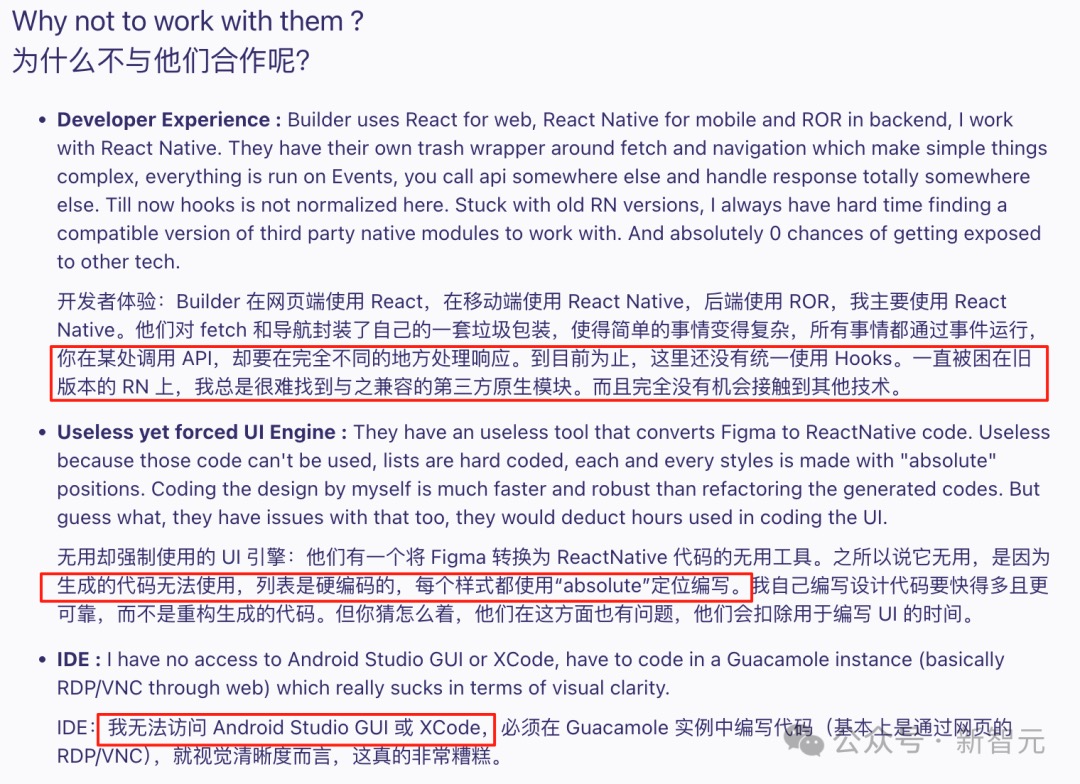
Moreover, insiders directly revealed that Builder.ai was essentially a company that used "AI domain" to commit fraud. The company employed a large number of low-cost developers to "pretend to be AI."

The Moment of Liquidation
As time went on, the cracks within Builder.ai continued to widen.
According to insiders, the company had long relied on exaggerated revenue forecasts and AI marketing to secure funding.
The massive global workforce and costly expansion plans, including entering new markets in Southeast Asia and the Middle East, led to a continuously rising rate of capital consumption.
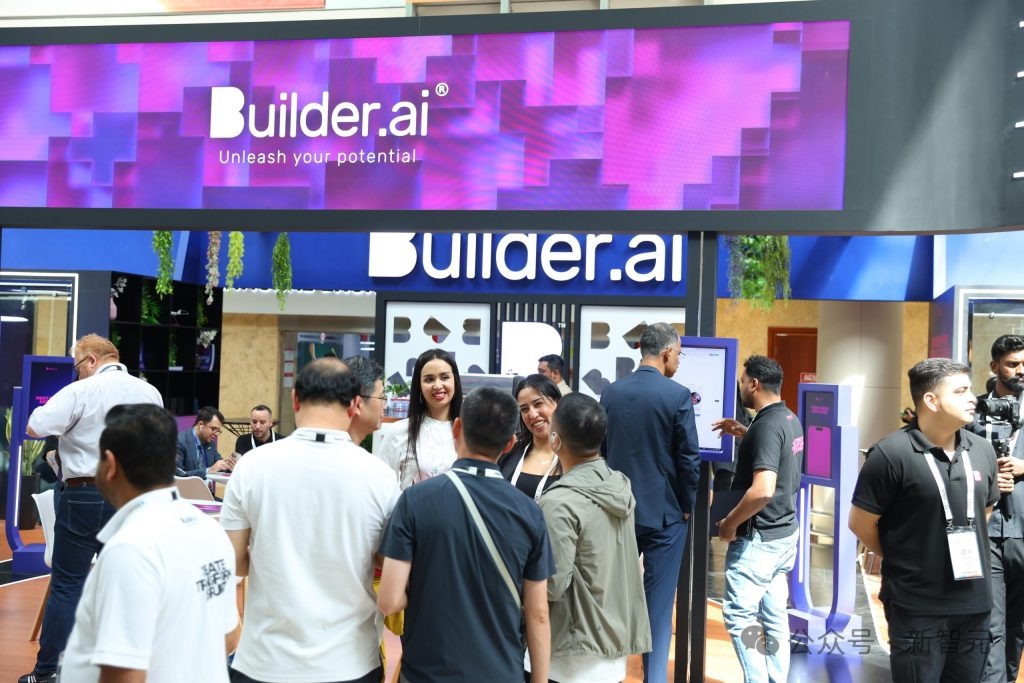
Meanwhile, the former CEO faced a series of legal issues.
According to the Financial Times, Duggal was embroiled in an investigation into a money laundering criminal case in India. In response, Builder.ai's general counsel had previously stated in a now-deleted blog that Duggal was merely a witness in the case.
However, Duggal resigned as CEO in February but remained on the board and retained his "wizard" title.
He was succeeded by Manpreet Ratia, a former executive at Amazon and Flipkart, who had previously served as managing partner at Builder.ai investor Jungle Ventures.

The moment of liquidation soon arrived.
In May 2025, Viola Credit, one of Builder.ai's senior investors, seized $37 million from the company's account, triggering a default.
Only $5 million in cash remained in the hands of CEO Manpreet Ratia, who had taken over just two months prior to clean up the mess.
Days later, he filed for bankruptcy.
It turned out that Builder.ai had provided exaggerated financial forecasts to lenders, falsely reporting its revenue health.
This breach of contract allowed Viola Credit to take decisive action.
However, the larger reason behind this structural collapse was that their business model never matched their brand promotion.
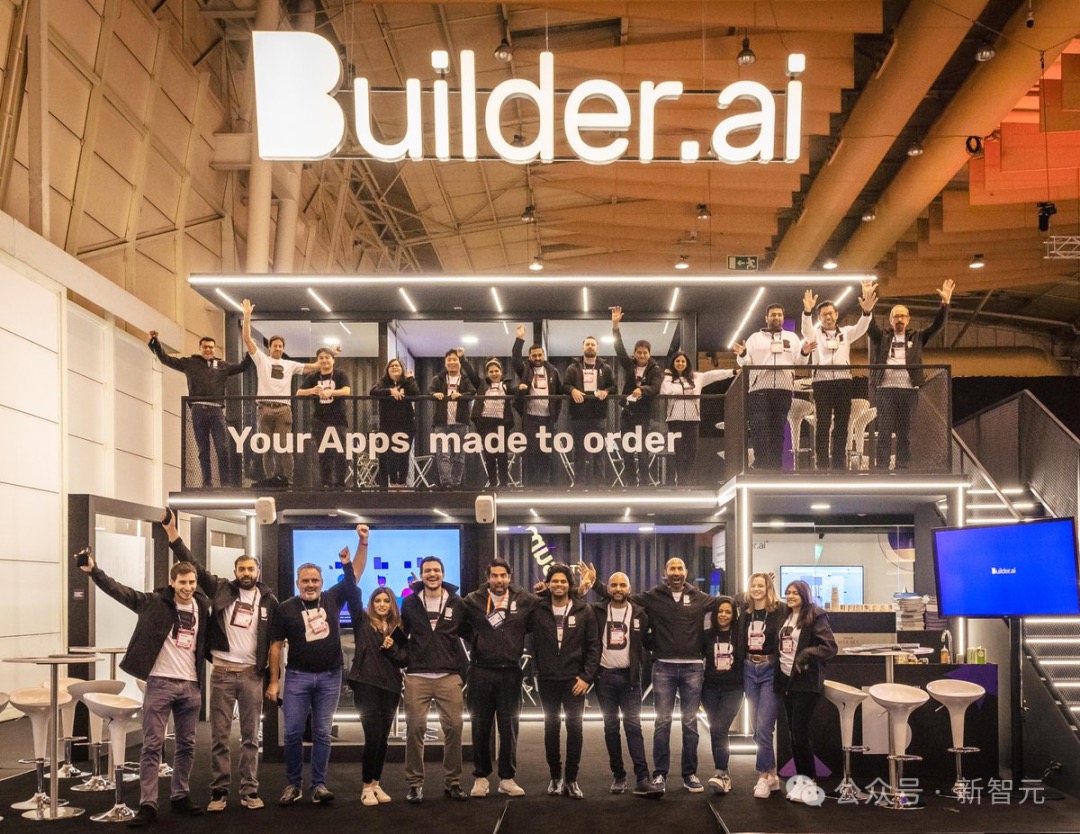
During an all-hands conference call, Ratia admitted that defeat was inevitable. Most global employees were laid off, and the product that had been positioned as an AI innovation flagship was shelved.
On May 20, it officially declared bankruptcy.
A month before the failure, the company underwent a last-minute restructuring, cutting 220 out of 770 employees.
Builder.ai stated this week that due to "inability to recover from historical challenges and past decisions, which placed immense pressure on the company's financial situation," despite "tireless efforts" from management, the company would appoint an executive to oversee the bankruptcy process.
According to the Financial Times, Builder.ai owed Amazon a total of $85 million and Microsoft $30 million.
Startup Star
Why did Duggal initially gain the favor of investors? Neither Qatari funds, SoftBank, nor Microsoft are easily deceived.
This brings us to Duggal's "impressive" resume.
Sachin Dev Duggal began his career at the age of 14 by assembling PCs, and by 17, he had created one of the world's first automated currency arbitrage trading systems for Deutsche Bank.
At 21, while still studying at Imperial College, he launched his next startup—a cloud computing company called Nivio.

After leaving Nivio, which was valued at $100 million, Duggal focused on creating a photo-sharing app called Shoto.
However, he struggled to find front-end developers that met his needs. Duggal couldn't help but wonder: if he had difficulty finding reliable help, how could someone without an engineering background start building an app?
Thus, he founded Builder.ai, aiming to make software building "as easy as ordering a pizza."
The rest of the story is well-known.
AI Washing
In the industry, Builder.ai's model of packaging traditional tech services as AI to secure funding is referred to as "AI washing."
Its failure has reignited discussions about the necessity of conducting technical due diligence in AI transactions.
For clients, many of whom are startups and small to medium-sized enterprises, this sudden shutdown left them scrambling to rebuild or migrate their applications. This highlighted the risks of relying on emerging players to provide critical software infrastructure.
Despite this setback, the broader low-code/no-code market remains resilient.
Gartner predicts that by 2028, 60% of new enterprise applications will be developed using such platforms. The global market size is expected to reach $26 billion by the end of this year.
From Gartner's accolades to Fast Company's rankings, from star investors to the top company logos displayed on its website, Builder.ai seemed to be one of the great success stories of the AI era.
But like many companies built on hype, it confused scale with sustainability and visibility with viability.
Ultimately, Builder.ai's story is less about a failed technology and more about the consequences of pretending it once worked.
In the investment frenzy driven by ChatGPT, scale, valuation, and exposure do not equate to a competitive moat.
Builder.ai's story closely resembles that of the former Theranos—when the promise of technology and actual capability show a millimeter of gap, the capital market can tear open a kilometer of abyss in the next second.
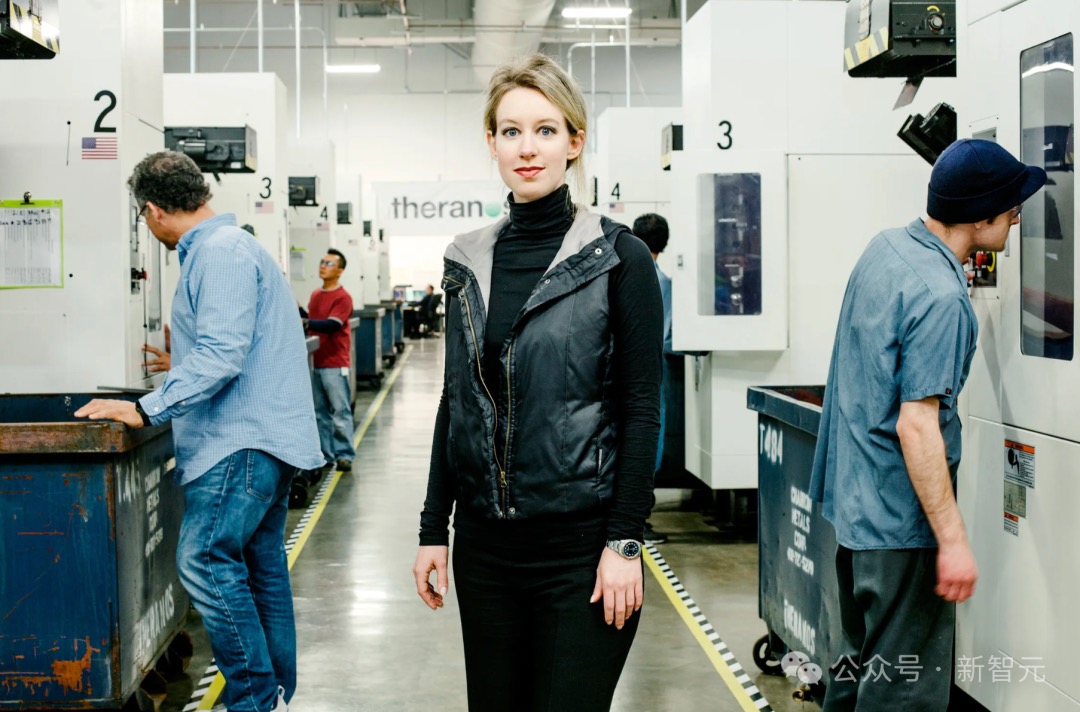
References:
https://www.ft.com/content/926f4969-fda7-4e78-b106-4888c8704bda
https://www.financialexpress.com/business/start-ups/why-did-microsoft-backed-1-3bn-builderai-collapse-accused-of-using-indian-codersforaiwork/3854944/
免责声明:本文章仅代表作者个人观点,不代表本平台的立场和观点。本文章仅供信息分享,不构成对任何人的任何投资建议。用户与作者之间的任何争议,与本平台无关。如网页中刊载的文章或图片涉及侵权,请提供相关的权利证明和身份证明发送邮件到support@aicoin.com,本平台相关工作人员将会进行核查。




